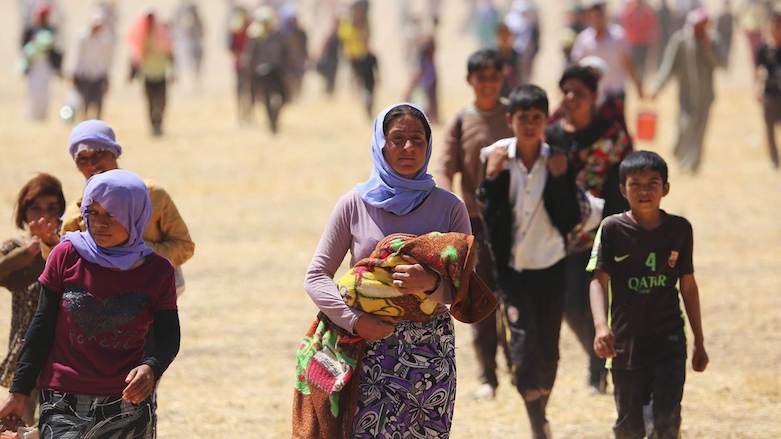More aid needed for return of Iraqi IDPs: IOM

ERBIL (Kurdistan 24) – Growing numbers of internally displaced peoples (IDP)s are returning to their homes but more support is needed to revitalize areas previously destroyed by the Islamic State (IS) to accommodate a more thorough process, IOM’s Sandra Black said Tuesday.
“We are very pleased to see that more than four million Iraqis who were displaced have been able to return to their homes,” Sandra Black, Media and Communications Officer at International Organization for Migration (IOM), told Kurdistan 24.
Following the emergence of IS in northern Iraq, six million people were displaced, 15 percent of the country’s entire population.
IDPs continued to return home in 2018, but at a slower pace than last year, according to a September IOM report.
The provinces with the highest number of returnees are Nineveh (1.49 million), Anbar (1.27 million), Salahuddin (nearly 553,000), Kirkuk (296,000), Diyala (222,000), and Baghdad (77,000), the organization stated.
However, Black added, there are still “more than 1.8 million Iraqis who have not been able to return to their homes”
As of September, the remaining IDPs were concentrated in Nineveh (602,000), Duhok (349,000), Erbil (217,000), Salahuddin (169,000), Sulaimani (151,000), and Kirkuk (124,000). Of those who are still displaced, 1.2 million are in private settlements, 574,000 are in camps, and 176,000 are in critical shelters.
Destruction of housing and infrastructure, lack of financial means and job opportunities, and security concerns are among leading obstacles, preventing IDPs from returning to their hometowns.
Black said, “life is very difficult for this population.” They have “exhausted their resources” as “they are spending a lot of money” renting a home and some of the IDPs no means of income as they “may have difficulty finding jobs.”
The latest IOM study had found, Black added, “the main reason” IDPs do not return to their homes is because they are destroyed.
Many other humanitarian organizations including IOM Iraq “have programs to help displaced people rebuild their homes,” but our resources “are not enough to provide for the hundreds of thousands of families that need this assistance.”
Editing by Nadia Riva
(Additional reporting by Blesa Shaways)
